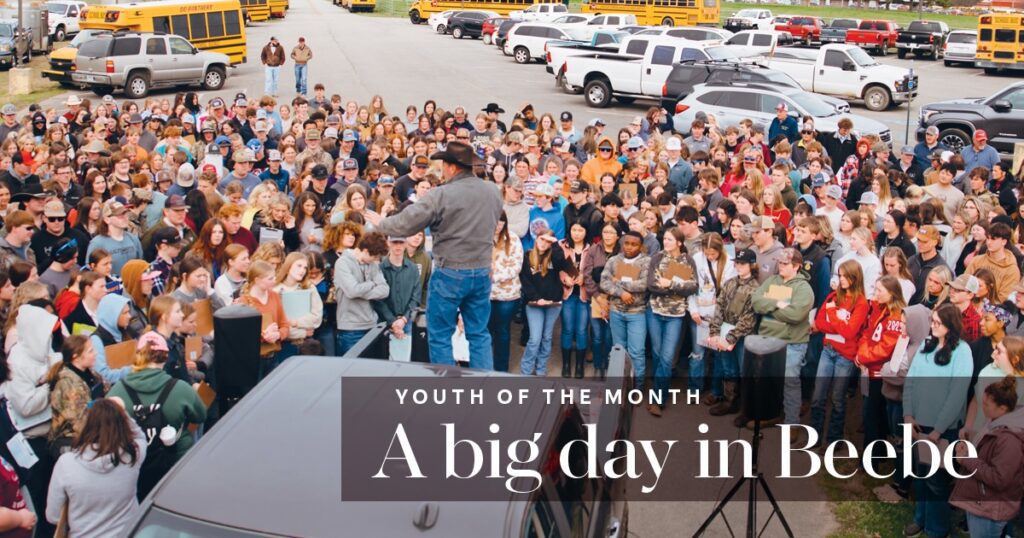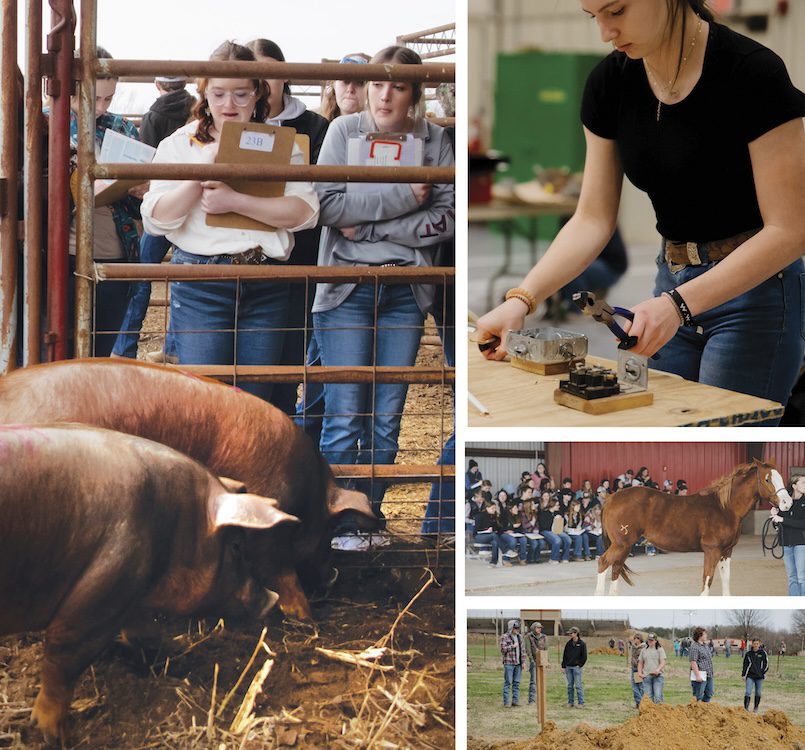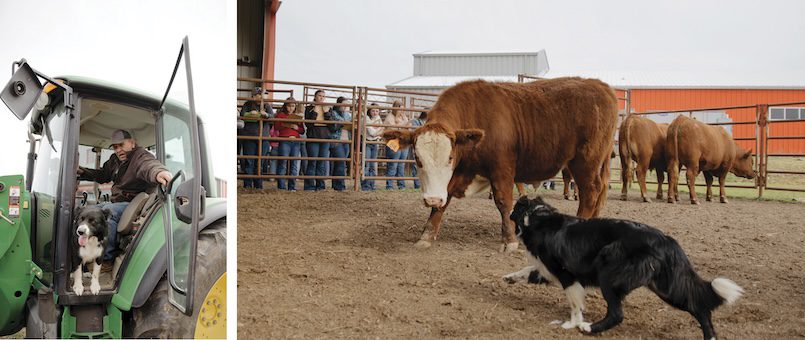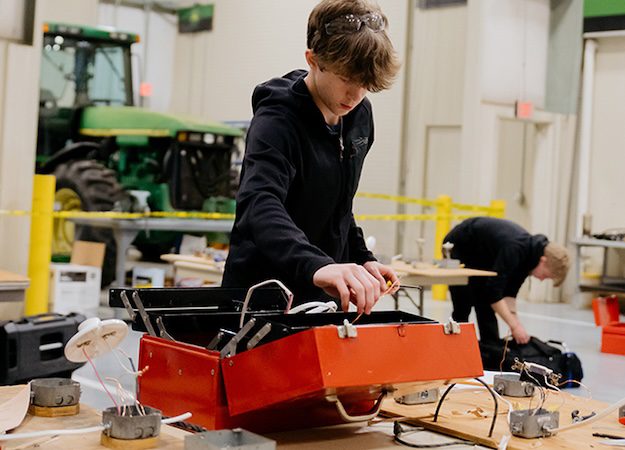31 Mar 2024 A big day in Beebe
By Judy Riley
On Feb. 28, 1,600 students from 86 high schools across Arkansas convened on the Arkansas State University at Beebe campus for the 68th annual Agriculture Day. The event featured a career fair and competition in 12 agriculture-related career development contests.

The competition accomplishes three goals. “We have three goals. First, we are actively recruiting students to come to ASU–Beebe and major in agriculture fields,” said Assistant Professor Chuck Wisdom. “Second, we are recruiting students to come to our campus and enroll in one of many majors we offer. And third, we want all high school students to get further education and training.”
That is a tall order, but here is how it went. To qualify, all participants had to take at least one agriculture course and be enrolled in Future Farmers of America (FFA) in their respective high schools. FFA was created in 1928 to teach the science of agriculture to students who would likely return to the farm. At that time, 60 percent of the total U.S. population lived on farms or in rural areas, according to the National Agricultural Statistics Service. Young farm children needed to learn as much as possible before assuming their farm roles.
Agriculture is a brave new world today. The current focus of high school agriculture curriculum includes information on various farming techniques but, more importantly, shows the depth and breadth of the world of agriculture and the possible careers for both young men and women.

“Students are unaware of the myriad of jobs available in agriculture, whether food and fiber production, processing, marketing, education or environmental stewardship,” said Jerry Sites, assistant professor of agriculture at ASU-Beebe. “With the career fair and various contests offered during Ag Day, we expose students to a host of jobs they never knew existed.”
The 12 contests included various hands-on activities, allowing students to demonstrate their knowledge and skills. Each student competes in only one activity, taking skills tests and written tests individually, but also as part of a group of four students from their school. Scores are tabulated, resulting in individual and team winners in each category. Several contests involve judging live animals, real plants and flowers, farm machinery, electrical equipment and actual soil samples. Winners went on to compete in similar contests in a districtwide area. According to Sites, volunteers are key to conducting the contests. They include former students, current high school teachers and officials for area agriculture agencies. “We couldn’t provide these rich opportunities without their support.”

Jenny Goodnight, agriculture instructor at Greenbrier High School, said this activity is a winner for her students. “They learn to be punctual and disciplined, to stay connected, to learn new skills, to build on a competitive spirit and to broaden their understanding of the field of agriculture. I came here as a student and will continue to encourage my students to get involved.”
There is a rich history with Ag Day. One of the first participants was Buddy (Wendell) Phillips of Searcy. He went on to major in agriculture at Arkansas State University-Jonesboro, did his practice teaching at Beebe and then became part of the faculty at the college where he competed, coming full circle. Sites said many of their graduates return to Ag Day, bringing their own students to participate. It is a bit of a homecoming for the young teachers, and for Sites, it is a source of great pride.
Wisdom was involved as a student at Beebe High School. He watched the college students who assisted with the contests and saw how much fun they had. He decided then and there that he would enroll at ASU-Beebe. In fact, he credits ASU-Beebe and the encouragement from professors for keeping him in college. He added “I might not have finished or gone on to get an advanced degree if it were not for the help from this college. Our student-faculty rate is one of the smallest in the state.”

The future of the agriculture industry in Arkansas looks promising. These young men and women will one day be on farms growing our food and fiber, running our agriculture and food industries, in labs developing new varieties of plants, or back in their respective schools teaching and encouraging another generation. What a day that will be!










